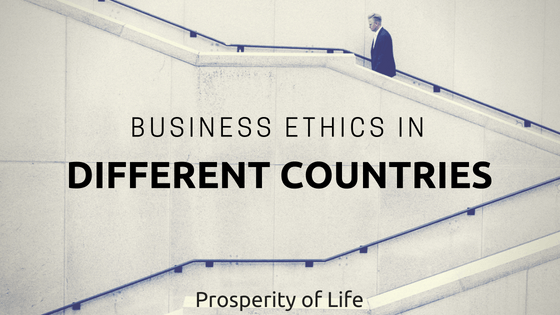Business ethics will differ from country to country and, as such, you should educate yourself on these business ethics in your international business practice.
At its core, business ethics is the study of business policies and practices. This includes things like corporate governance, bribery, discrimination, and corporate social responsibility. The primary goal of business ethics is to ensure that trust is established between businesses and consumers.
If you are someone who speaks about business ethics and presents them, it’s best to make sure that you are finding a place of respect when discussing them. If you’re in a different country and are speaking on a panel about business ethics, take into account the business values of the country that you’re in. What values do they already have and utilize?
Perhaps you’re presenting in a country that has a workforce that knows nothing of bribes like some places in India. These workers may be frustrated by their current structure of business ethics. One way you can help is by empowering the employees to acknowledge their level of business ethics and if there are areas for improvement, you can help them figure out ways to act on these areas of improvement.
If you’re taking business operations overseas, one thing to consider is if you’ll transfer your existing policies and procedures or if you’ll adopt these policies and procedures to fit the new workforce overseas. It’s generally recommended to establish the same standards in offices across the board. This can work to your advantage to ensure compliance throughout the company. Employees are far less likely to engage in any type of risky or illegal behavior if it’s shown to be clearly against the company’s policies and procedures. One way to all but guarantee this kind of compliance would be to mandate that all employees read and sign a manual with the company policies and procedures and then put together a knowledge check for the employees to complete.
To sum it up, it’s essential that a company establish its management philosophy when it comes to protecting business ethics. Usually interchanged incorrectly, a management style is how you manage your workforce and a management philosophy is why you manage your workforce the way you do. If you set a management philosophy that puts remaining as ethical as possible with business practices at the front of your mind, you can ensure that your company thrives and maintains the highest level of business ethics possible.

